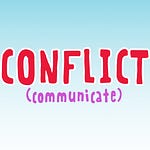Abbie: Hello and welcome to the CosmoParenting Podcast brought to you by the CMM Institute for Personal and Social Evolution. In this space, we invite you to see yourself as someone who is curious about and actively participating in creating your own meaning around parenting.
This is our ‘Animate’ episode, where we offer some strategies to integrate into parenting so you can bring to life the things we talk about here on the podcast. Let’s begin.
*music*
Abbie: I am joined once again by gifted educator Stephanie Higgs, to offer a best practice from a teacher’s perspective. Hi, Stephanie.
Stephanie: Hey, Abbie.
Abbie: So, this month we are talking about Adaptation. What’s the strategy you have for us today?
Stephanie: Today’s strategy is called ‘Read the Room’. As we’ve previously discussed, we know that adaptation can positively or negatively impact outcomes and environments. Using a ‘Read the Room’ strategy can help your child observe the verbal and nonverbal communication skills of others who are present and adapt their behaviors accordingly.
So, you want to start with something like this in a moment that’s a little bit more neutral when tensions and emotions aren't feeling high. But just start to work with your kiddo on reading kind of some of those nonverbal cues of, you know, if my arms are crossed, or if my brows are furrowed, or if my hands are kind of clenched, starting to pick up on what those nonverbal cues might signal that I'm feeling. So do I seem, you know, approachable and happy and welcome? Or if I'm showing some of those kind of signals with my body, does that maybe feel like a time where something else is going on and maybe my mind is kind of elsewhere?
So you want to teach kind of those explicit nonverbal cues so that your kiddo can start picking up on those so that then the kid is able to implement something I like to call that ‘Read the Room’ strategy.
So, for example, if a caregiver is cooking dinner, or disciplining a younger sibling, and getting a phone call all at the same time, if we’ve done some pre-teaching here perhaps that kiddo might kind of learn to sense and ‘Read the Room’ and realizes that that may not be the most ideal time or environment for, you know, this hypothetical older sibling to drop the news that, oh yeah, they’ve completely procrastinated on a science project that’s due, you know, tomorrow. Instead, they might be able to ‘Read the Room’ a little bit and see that this news is going to further impact that already stressful environment. So after they've kind of been able to ‘Read the Room,’ perhaps we've also pre-taught some problem-solving strategies so that they can sort of get started and take a little bit of initiative while that environment kind of settles back down.
So, alternative solutions here might include thinking through 2 or 3 different ways to problem solve and making a plan to complete the task a little bit more independently, or maybe even just getting started solo, and then letting the caregiver know, hey, now that you’ve, you know, got dinner finished and that we’ve kind of, you know, been able to regulate this other sibling, um, I also have sort of a stressful event that I've just remembered. I have this big project due tomorrow, but let me go ahead and tell you how I started to problem solve by myself or here's what I've gotten done so far. So it's just this idea of being able to read a situation and kind of determine if we would further add to, you know, kind of that chaos that may already be set in motion or if we can employ some independent strategies to at least begin doing some problem solving ourselves.
Abbie: Mmm. I love that this example feels a little bit more appropriate for older children, but it’s still something, you know, going back to that idea of pre-teaching from our first conversation, it's still something you can be laying the groundwork for with your kids as they grow. So I love that being kind of applicable across a bunch of different ages and kind of cultivating and helping grow this thing for your child.
And the other thing I love about this strategy is that it feels like really helpful guidance when it comes to decision-making, which is, you know, a skill that we could all probably use some help with, truthfully. And I'd love to build on what you shared and offer a slightly more complex version of ‘Read the Room.’ And it's called the ‘NOREN Model.’ So N-O-R-E-N. NOREN stands for Notice, Observe, Respond, Engage, and Notice (Again). And this was actually created by two colleagues of mine Beth Fisher-Yoshida and Ilene Wasserman, who we will actually be hearing from in a coming theme. And this feels to me, like I said, like the adult version of ‘Read the Room.’ It asks us to pay attention, think mindfully about what we take in, and adapt and act accordingly. And like I said in week one, adaptation is something that happens naturally in some instances, but it is also something we can be practicing. So, I’m thinking that if we want to cultivate an adaptive parenting style overall, then it makes a lot of sense that these practices we are offering are about adapting in the small moments. Because that is what it takes to make big changes, being intentional in those small moments, I think.
Stephanie: Abbie, I'm so glad you brought that adult perspective in here as well, because I will tell you through working on some of these social emotional refinements with my students, I have been just as refined as my kids have.
Abbie: Mmhmm.
Stephanie: We're having these conversations about, you know, healthy ways to communicate. And it's really easy for me to tell you when you got your feelings hurt on the playground, well, why didn't you just say this and this? And in my head, there's this little tiny voice saying, but do you remember last week when your friend hurt your feelings? You know, how to respond in that moment. And you didn't use your words the way that you just, you know, advocated for this child to use theirs. So I love that you brought in that adult perspective, because I think something that we'll all learn through these months together is that we can all be refined by these practices at any age.
Abbie: Yeah, we are definitely all learning together. So thanks for pointing that out. And thanks for joining me today, Stephanie! And thank you to everyone listening for joining us as well. You can connect with Stephanie on Instagram @littlemissgifted and you can check out our other CosmoActivities and additional resources at www.cosmoactivities.com. We are so grateful to be on this journey with all of you. And we will see you next week for the final episode of the month where we will talk communication on the theme of adaptation.
*music*












Share this post